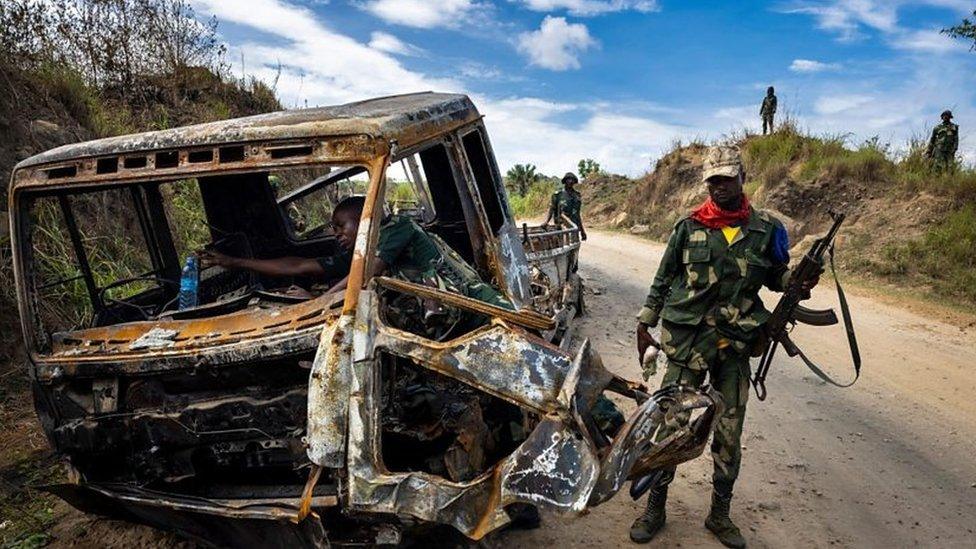Record number of displaced people despite Covid: UN refugee agency
- Published
Two children, a decade of war in Syria: Rahaf and Mustafa symbolise the suffering inflicted by Syria's war
The number of people who have been forced to flee their homes around the world has risen to a record 82 million despite the impact of the pandemic, the UN's refugee agency (UNHCR) says.
The total has doubled in a decade and means more than 1% of the world's population is displaced.
The pandemic had led to a significant reduction in asylum applications and overall migration, the UNHCR said.
But the 11.2 million people displaced last year was still more than in 2019.
Many were forced to flee because of persecution, conflict, violence and human rights violations.
The vast majority were internally displaced, with travel restrictions leaving them less able to cross international borders.
Meanwhile, only 250,000 refugees were able to return to their countries of origin and only 34,000 were able to be resettled in third countries, the UNHCR said in its Global Trends Report.
The UNHCR said it was only a matter of time before the number of displaced people worldwide topped 100 million.
"We need much greater political will to address conflicts and persecution that force people to flee in the first place," said UN High Commissioner for Refugees Filippo Grandi.
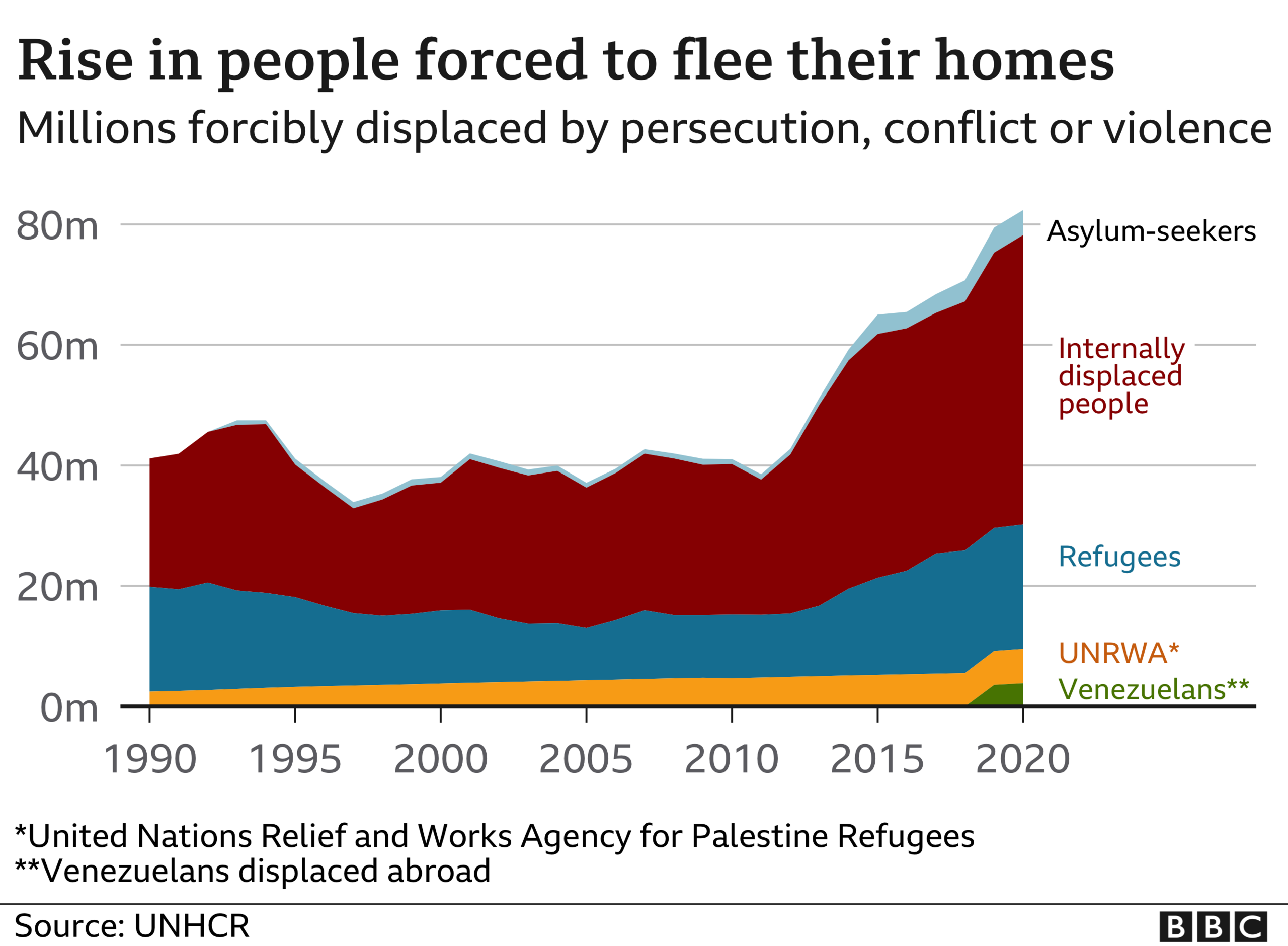

The UN body said it expected conflicts to intensify in 2021 as coronavirus restrictions are relaxed. It warned that food crises were set to worsen, with protracted conflict, extreme weather and the pandemic exacerbating shortages.
South Sudan, the Central African Republic and Syria were at risk of famine, it said.
Meanwhile, the number of people in extreme poverty worldwide was expected to rise to between 119 million and 124 million as a result of the pandemic.
More than half of the total number of displaced people - about 48 million - are displaced internally, the UNHCR said.
Thousands of Venezuelans are fleeing the conflict between Venezuela’s army and Colombia’s rebel groups.
While the pandemic made it harder to cross international borders to escape, the UNHCR said some countries had continued to ensure displaced people could access their territory. It said Uganda had maintained access for people fleeing fighting in the eastern DR Congo and had put in place Covid testing for them.
More than two-thirds of those displaced abroad come from just five countries.
They include Syria, where the civil war now in its 10th year has displaced 13.5 million people - more than half the country's population. About half of those displaced have fled abroad while the rest are internally displaced.
Nearly three-quarters of people displaced abroad are hosted in neighbouring countries.
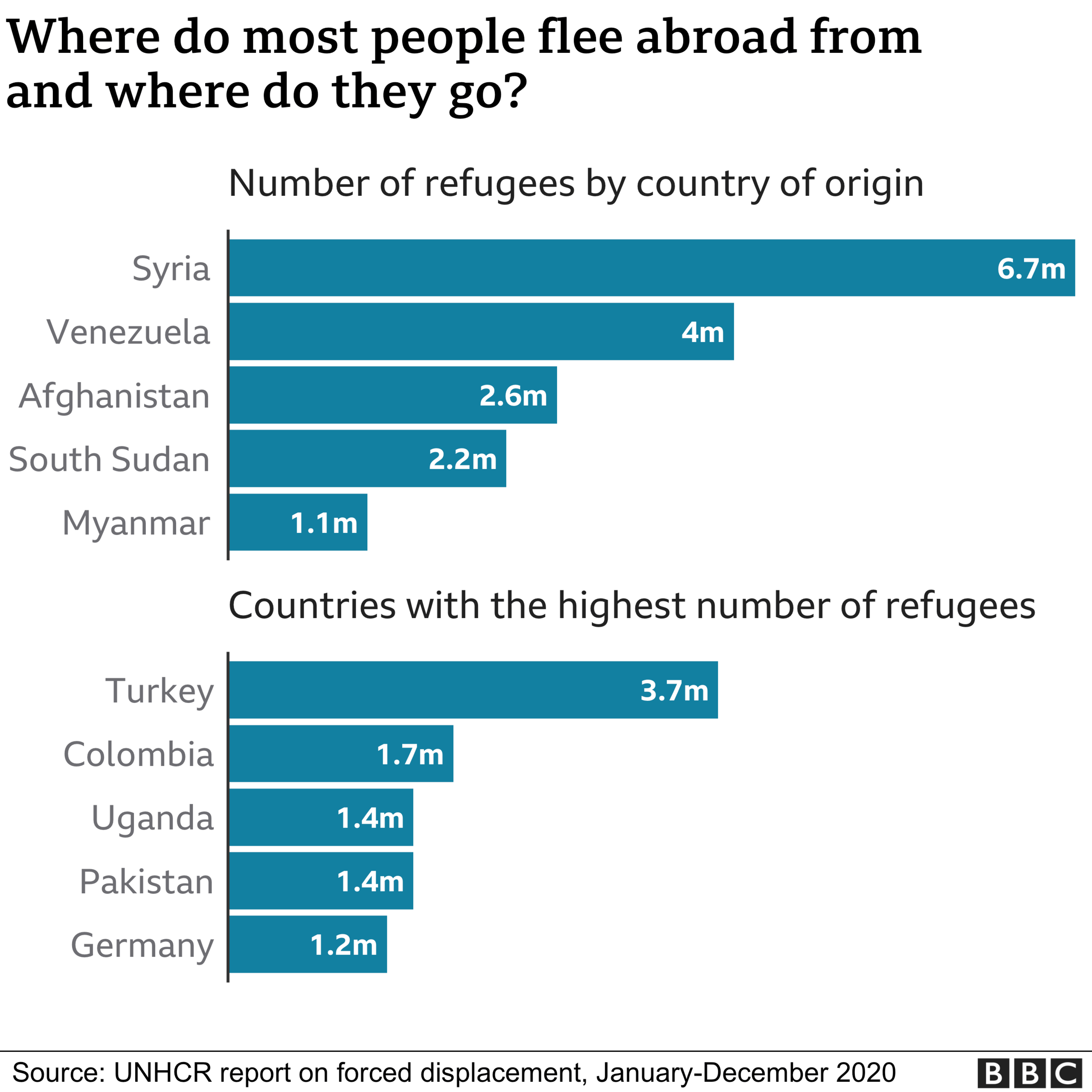
The displaced population also includes a growing number of children born as refugees. The UNHCR said nearly one million children were born as refugees between 2018 and 2020.
Yet despite the bleak overall picture, the UNHCR said there were a couple of encouraging signs, including the US's commitment to take in 62,500 refugees in 2021 and 125,000 in 2022, and Colombia's decision to give more than a million Venezuelans temporary protected status.
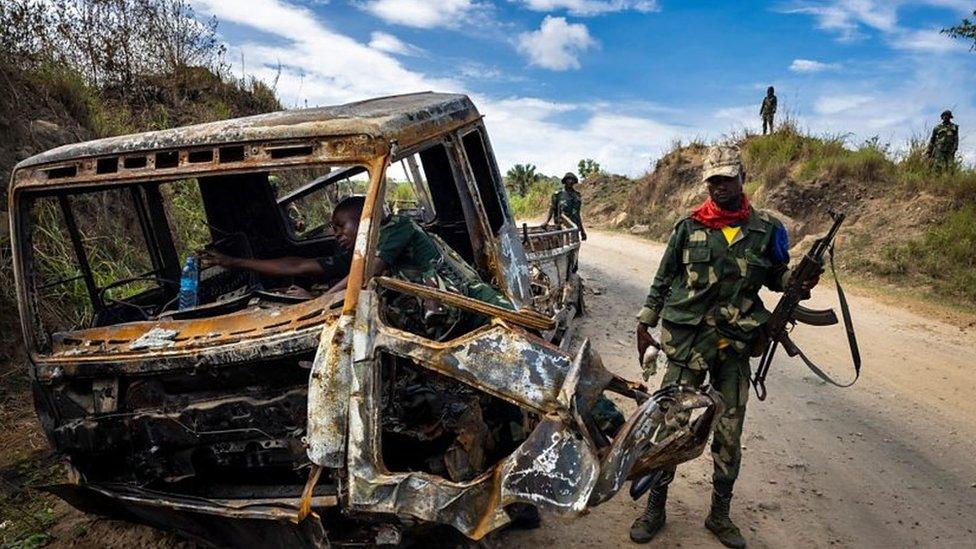
Instability in DR Congo has forced people to flee to neighbouring Uganda
- Published2 May 2023

- Published9 July 2021
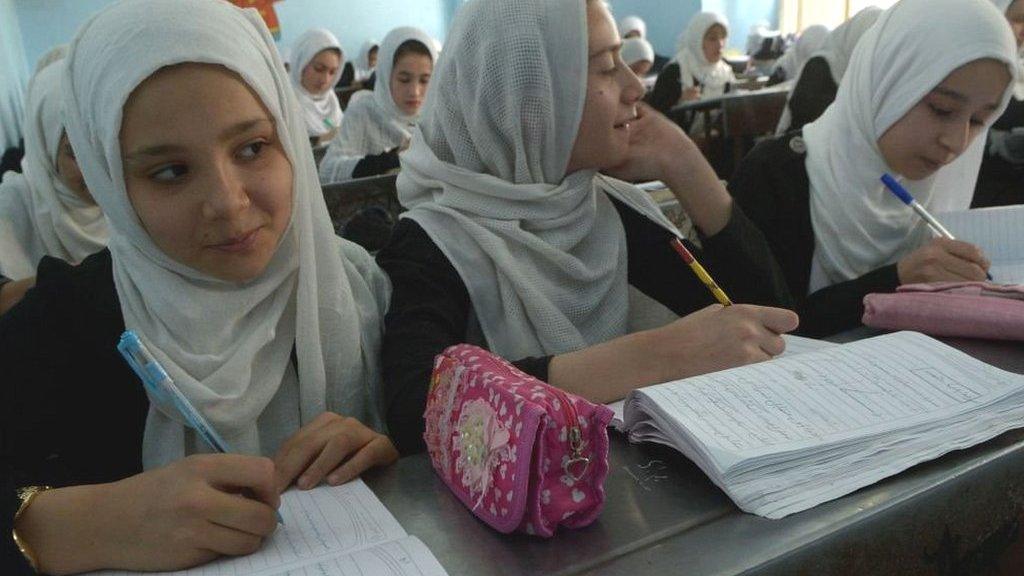
- Published14 June 2021
